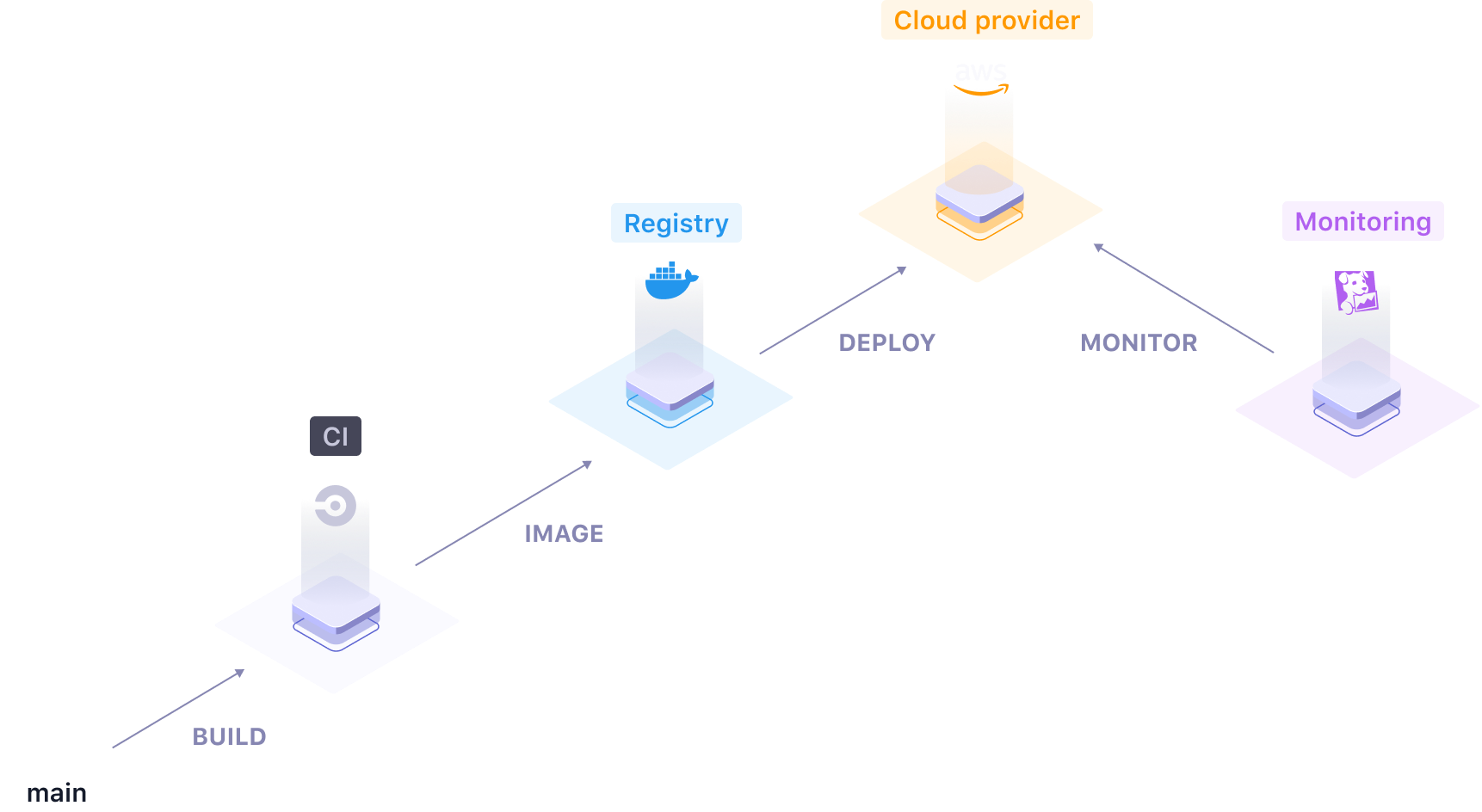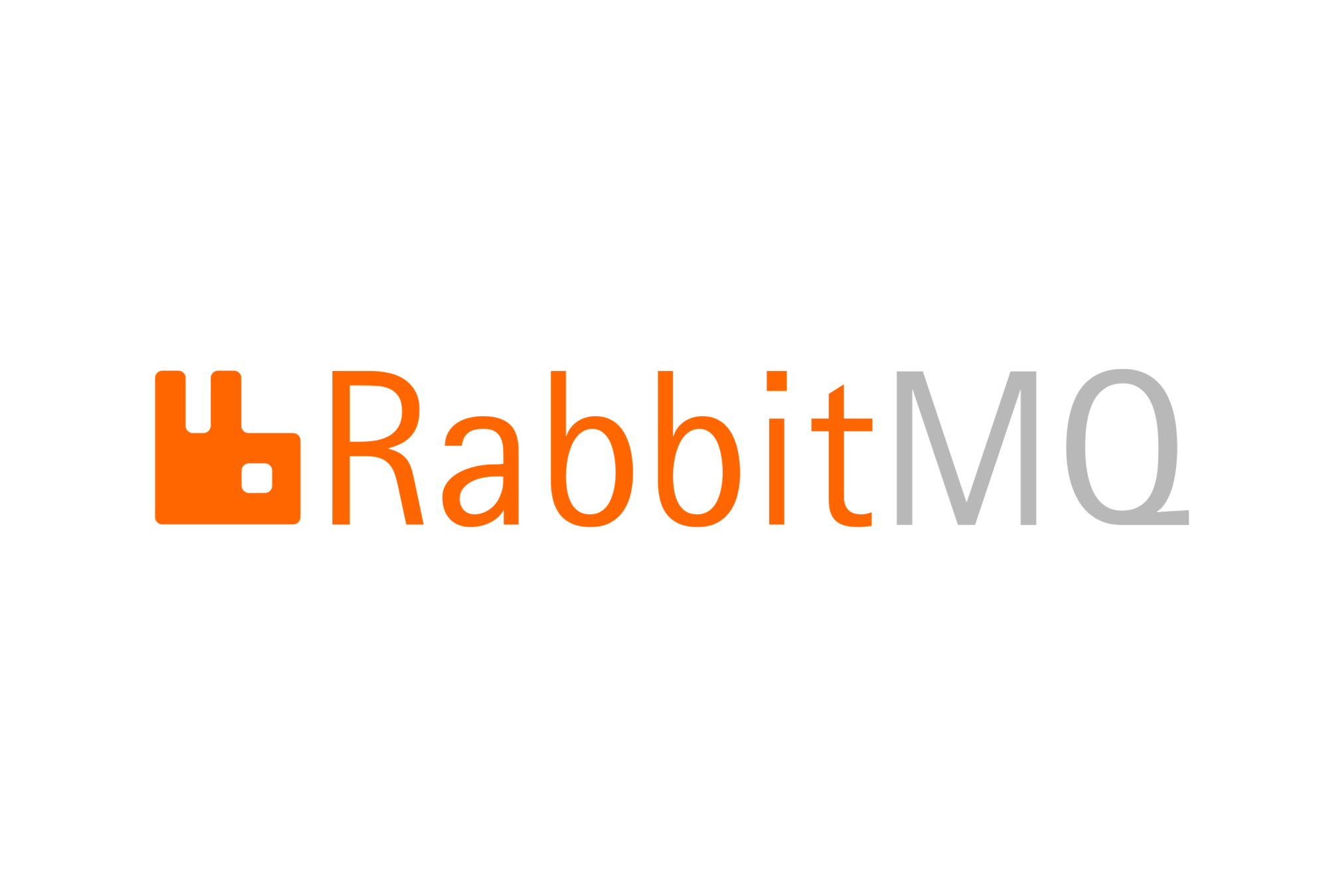Feedback using NATS at

@rophilogene



Romaric Philogene | CEO @ Qovery
Who am I?
struct Profile<'a> {
name: &'a str,
age: u8,
job_position: &'a str,
company: &'a str,
skills: Vec<&'a str>,
}
fn main() {
let profile = Profile {
name: "Romaric Philogene",
age: 32,
job_position: "CEO & Co-founder",
company: "Qovery",
skills: vec![
"Kotlin",
"Rust",
"Python",
"Infrastructure",
],
};
print!("{} greets you 👋", profile.name);
}
@rophilogene


@rophilogene


Qovery is a multi-cloud deployment platform


Developer
Github, Gitlab, Bitbucket
Qovery
@rophilogene


Compose your deployment flow with Qovery

@rophilogene


Multi-regions apps deployment


@rophilogene


NATS @ Qovery
Cloud-native messaging system
(incubated CNCF project 👏)



@rophilogene


NATS is easy to install (and maintain)
# Single server NATS on Kubernetes
$ kubectl apply -f https://raw.githubusercontent.com/nats-io/k8s/master/nats-server/single-server-nats.yml# Run NATS locally with Docker
$ docker run -p 4222:4222 nats
[1] 2021/02/18 14:57:09.669439 [INF] Starting nats-server version 2.1.9
[1] 2021/02/18 14:57:09.669553 [INF] Git commit [7c76626]
[1] 2021/02/18 14:57:09.669828 [INF] Starting http monitor on 0.0.0.0:8222
[1] 2021/02/18 14:57:09.669900 [INF] Listening for client connections on 0.0.0.0:4222
[1] 2021/02/18 14:57:09.669917 [INF] Server id is NDGLXRBY5JMEQ6EUY2N7ORCNXBOPFUYQDARFVZTMU2CUO7K4ZZYNVLVQ
[1] 2021/02/18 14:57:09.669926 [INF] Server is ready
[1] 2021/02/18 14:57:09.670293 [INF] Listening for route connections on 0.0.0.0:6222Run NATS on Kubernetes
Run NATS on Docker
@rophilogene


NATS is low memory footprint
$ nats-top
nats-server version 0.6.4 (uptime: 31m42s)
Server:
Load: CPU: 0.8% Memory: 5.9M Slow Consumers: 0
In: Msgs: 34.2K Bytes: 3.0M Msgs/Sec: 37.9 Bytes/Sec: 3389.7
Out: Msgs: 68.3K Bytes: 6.0M Msgs/Sec: 75.8 Bytes/Sec: 6779.4@rophilogene


NATS is easy to use
nc, err := nats.Connect("demo.nats.io")
if err != nil {
log.Fatal(err)
}
defer nc.Close()
// Subscribe
sub, err := nc.SubscribeSync("updates")
if err != nil {
log.Fatal(err)
}
// Wait for a message
msg, err := sub.NextMsg(10 * time.Second)
if err != nil {
log.Fatal(err)
}
// Use the response
log.Printf("Reply: %s", msg.Data)nc, err := nats.Connect("demo.nats.io")
if err != nil {
log.Fatal(err)
}
defer nc.Close()
// Use a WaitGroup to wait for a message to arrive
wg := sync.WaitGroup{}
wg.Add(1)
// Subscribe
if _, err := nc.Subscribe("updates", func(m *nats.Msg) {
wg.Done()
}); err != nil {
log.Fatal(err)
}
// Wait for a message to come in
wg.Wait()Synchronous
Asynchronous
@rophilogene


Multiple subscribers

Paris



New York



Sydney





requests
requests
requests
requests
@rophilogene


Dynamic message routing with NATS subject













engine.cust1.a
engine.cust1.b
engine.cust1.c
engine.cust2.a
engine.cust2.b
engine.cust3.a


environment deployment
command
engine.{customer_id}.{engine_id}
@rophilogene


NATS queuing with NATS subject





environment deployment
command x100
x10
with queue group
@rophilogene


To consider
1. Slow consumers = low performance
2. STAN is not as mature as Kafka - But the NATS team is working hard on it :)
3. Queue group: random load balancing. No fair load balance :(
4. No letter box - if you lose your connection, you lose all pending messages.
TO CONCLUDE 👨🏫
@rophilogene


To conclude 👨🏫
As an ops NATS is:
- Easy to install
- Easy to maintain (Low maintenance cost)
- Lightweight
- Scalable
- Reliable
- And built for the Cloud
As a dev NATS is:
- Available in the most popular prog languages.
- Easy to use
THANKS 👏
QUESTIONS?
Speaker: romaric@qovery.com - @rophilogene
Web: qovery.com - @Qovery_
We are hiring 👨💻 jobs.qovery.com
Copy of CNCF Meetup: feedback using NATS at Qovery
By Romaric Philogène
Copy of CNCF Meetup: feedback using NATS at Qovery
- 247



